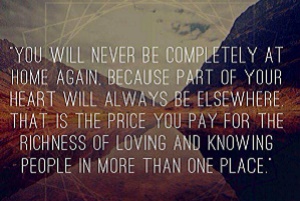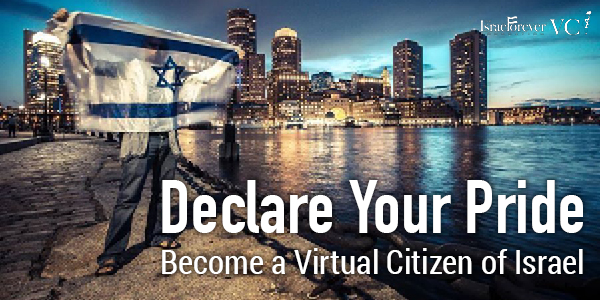A Nation Connected By Fishing Line
By Lisa Brink
A blogger after my own heart once wrote:
[Israel is] like a big family crowded into a too small apartment. Of course we tell each other what to do! Yes, strangers might ask pointed questions after spending two minutes with you in the supermarket checkout line, but imagine if a family member was simply indifferent to you. Wouldn’t that sting more? And here’s the thing, when Israelis yell at you, it’s something like your brother yelling at you. At the end of the day, he still loves you, and you love him. It’s not personal. Two strangers in Israel can have a loud, heated argument and, at the end of it, clap each other on the back, call one another ‘achi’ and buy each other coffee.’
I have a similar outlook on life in Israel: I call it the fishing line theory.
Have you ever noticed how you can be caught up in the crowds at a busy shuk, stand in a lengthy line at the post-office, or cram into an elevator and, despite not knowing a soul, you feel an overwhelming sense of belonging?
That’s the fishing line theory at work.
Because, when you live in Israel, it’s as if everyone is invisibly connected to one another by colorless thread. You can’t see it, but you constantly feel it’s there.
It’s this virtually invisible fishing line that seemingly gives a complete stranger in a dress store the right to ask if I’d mind waiting outside the dressing room while she tries on the same outfit in two different sizes, so that I can tell her which size fits her best. It’s this same fishing line that gives me the freedom to be entirely honest as I tell this women I’ve never met before that she can take the dress in the smaller size, provided she wears support underwear to hold her stomach in.
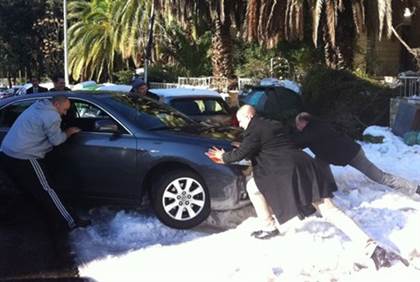
A woman whose car was stuck on one of Jerusalem’s snow-covered streets was helped by Defense Minister Moshe Yaalon. Defense Ministry
In the same vein, when I struggle to get my car out of a tight parking place, and a man waiting for my spot raps on my window and suggests he reverse my car out for me as it looks likely I’ll spend the rest of my life trying to get it out myself, that’s the fishing line effect.
(When I laughingly shared this parking tale on Facebook, a number of friends exclaimed that exactly the same thing had happened to them, which further reinforces my theory.)
Other examples of this fishing line philosophy abound.
When you bite into a falafel at a roadside stand, and a passerby smiles and says “b’tayavon,” you feel the tug.
When the lifeguard announces that a missing child has been found, and beach-goers break into applause, that’s typical too.

Supporters of Israeli soldier Gilad Shalit celebrate after his return home in Mitzpe Hila, northern Israel, on 18 October 2011.
Copyright © EPA
But the ultimate example of a nation connected came when Gilad Shalit was released, and all of Israel came to a halt as hundreds of thousands of people cried tears of relief and joy for a young man they’d never even met.
It’s because I have grown so accustomed to feeling this invisible support that I feel myself go into freefall when I return to South Africa every summer. I drive down familiar streets, and wander shopping malls I grew up in, and feel so very foreign. Craving a sense of connection, I try unsuccessfully to make eye contact with other drivers at traffic lights.
I stand in line at the supermarket, and silently will the person behind me to peer into my basket and ask curiously what I plan to make with my box of filo pastry, as so regularly happens here, or to recommend that I exchange my dishwashing powder for another brand that’s on discount.
The only time I succeeded in this quest was the day I happened to stand next to an Israeli — we were Facebook friends by the time we’d reached the till. By the end of my trip, I so desperately miss this personal interaction that I find myself deliberately loitering in the vicinity of the Dead Sea product carts in the local shopping mall.
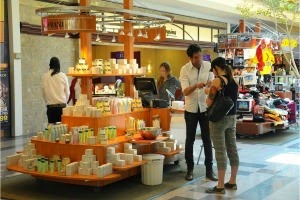
It’s never long before a swarthy, young salesman flags me down and, on hearing that I live in Israel, typically welcomes me like a long-lost cousin. “Don’t waste your time looking at my cart.” he declares. “You’ll pay a third of the price for the same thing when you get back.” From then on, every time I visit that particular mall, the sales staff catch my eye and smile and wave as we acknowledge our unspoken link.
Tug…tug.
I finally reach Johannesburg International Airport and, as I make my way to what is unmistakably the EL AL queue, I feel as if I’m home — before the flight has even departed. The EL AL ground crew don’t say, “We request that all passengers stand still while we thread everyone together,” but they may as well. The sense of connection is already there.
This feeling continues throughout the flight, as passengers gather in the galley kitchen and brazenly help themselves to coffee and biscuits, or hang over one another’s seats making loud conversation. Bearded men with tefillin and tzitzit daven in the aisles at day-break. And kids, high on sugar from the inevitable chocolate milk and pudding included in their children’s meal, run amok through the aisles.
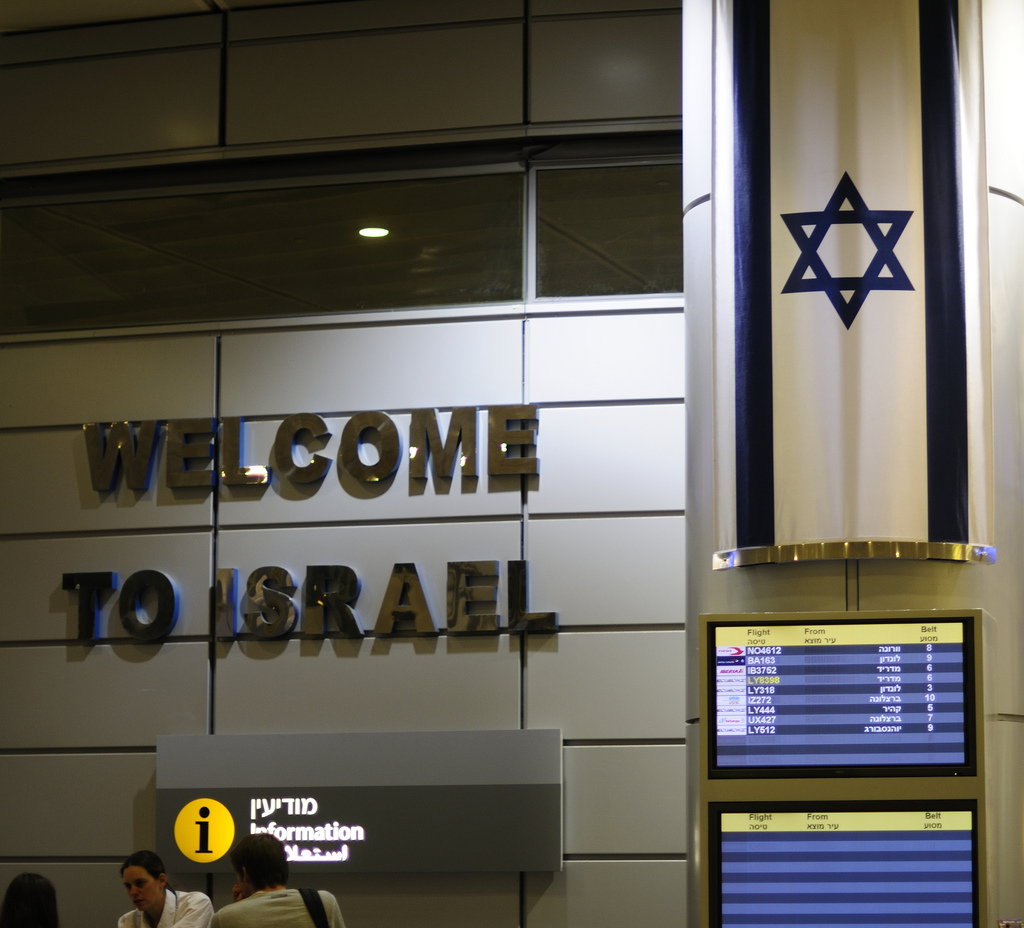
Despite the chaos, I grin broadly the entire time, reveling in these familiar feelings. When the plane touches down at Ben Gurion Airport, I embarrass my children by clapping louder than anyone else.
Critics of this post will accuse me of glossing over the very real challenges of life in Israel, and I am the first to admit that I rarely leave home without my rose-tinted glasses securely in place.
The way I see it, we aren’t merely olim; we’re Israelis, by choice, and we get to choose how we see life here. It’s all too easy to focus on the negatives, but it’s that much more rewarding to focus instead on the countless qualities of this colorful, complicated and much-loved land.
What people have to understand, are the everyday acts of kindness, the opportunity to truly live your Judaism, and the unrivaled sense of community that are the true currency of this unique nation.
Based on this exchange rate, while I undoubtedly would have enjoyed a far more affluent lifestyle had I remained in South Africa, I’ve never felt richer than I feel right here.
Tug…tug.
Originally posted from The Times of Israel.
Recommended for you:
STAY CONNECTED NO MATTER WHERE YOU LIVE
Share your love of Israel as a Virtual Citizen of Israel today!
About the Author





